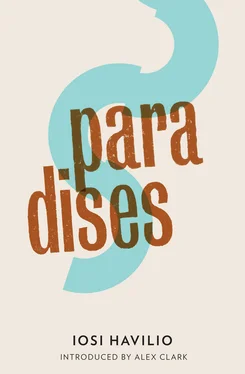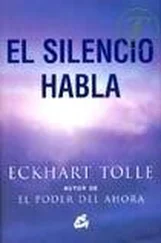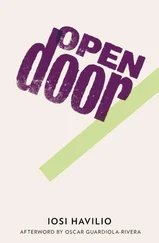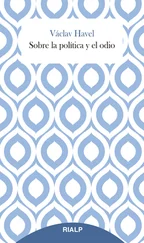What are you doing, you maniac? is the first thing she says and she points at the khaki shirt, tapping the zoo badge with her index finger. I laugh, because she called me a maniac, because if I put myself in her place and see me like this it must be funny, but also because I don’t really know how to act, what to say, how to explain everything. I’d have to tell her about Jaime, that we came to the city because apparently the farm didn’t actually belong to him, it was on loan, he was taking care of it, and that the owner decided to sell the land to the country club. I would tell her we arrived the day of the floods, Simón and I, that we stayed in a little hotel near here, the Fénix, where I met a Romanian called Iris who works in the zoo and well, here I am. I’d tell her about Canetti, Tosca and el Buti another day.
But I say nothing. I stand there like an idiot, introspective, making a visor with my hand so the sun doesn’t get in my eyes. And she says: Where are you living? I’m about to lie, tell her anything, invent an address, but I come out with a vague remark. In a building ten blocks that way, I say, stretching my arm out in front of me, and retort: And you, what are you doing here? She shrugs. Life, she replies. And adds, as if she needed to: It’s been so long. Well, I have to run, she says, gesturing towards the red car with her chin. Do you have a moby? I shake my head, smiling at moby. Here, take a note of my number, she says, and she pulls a pen from her pocket and writes it on my palm. We have to meet up, man. You have to call me, no questions, it’s an order.
The encounter, so unexpected, and at the same time so right, leaves me feeling distracted. Instead of carrying on, I seek refuge in the botanic gardens. I pick the first free bench I come across, next to a fountain of greenish water and floating plants, a mixture of water lilies and rottenness. I quickly try to recover Eloísa’s face before it’s erased from my mind, her new face, from today: more drawn than before, her mouth small, that little fringe covering her forehead, the pronounced bags under her eyes, a combination of excess and maturity, the same gaze as ever, innocent despite everything. And the red coupé with tinted windows and the guy driving it, hurried and mysterious. A boyfriend with money, it occurs to me. Perhaps she thinks I’m still with Jaime, that I brought the old man to the city. She didn’t ask me about Simón either, it’s highly probable that she’s forgotten him. There are things, people, you should never see again. Why would you? There should be some mechanism to prevent situations from the past repeating themselves, like in a board game, from the start to the end square without turning back.
A very tall man sits down next to me. A few minutes of silence, then he turns his head without twisting his torso, like a marionette of a big ugly bird, and says to me: I’m a poet. Skinny cheeks, his lips pursed as if he were smoking an invisible and eternal cigarette. Coughing between drags. He offers me one of his books, I thank him, I say perhaps some other time. Rather than giving up, he gets exasperated. I agree to let him read me one of his poems.
All our selves
will make universal a feeling,
and the curtain will fall
never again to be a colony.
He finishes with a long, aspirated Ah, as if in need of air, staring straight at me with enormous, unfathomable, animal eyes, waiting for my approval. I smile and he insists I take his book, he wants to give it to me: Don’t pay me a thing, he says. On the cover there’s a picture of a man bent over himself in a painful-looking foetal position. It’s signed: Marco Abel Muscolino. I wonder whether that’s his real name or an artistic pseudonym. I return the book to him: Next time, I say, next time I’ll buy it from you, and I stand up, taking my leave with a quick, quiet bye before he tries to keep me there.
I cross the road badly, a taxi scrapes past me, I circle the plaza three times and linger for a few seconds at the foot of the Garibaldi monument without looking up at it. Poom. The same route as ever. By the skips from which I rescued the snake book, a small dog comes out of nowhere and barks at me, irritated, like a large rat, running after me for a few metres and threatening to bite. The barks force me to jog to the corner, something I don’t decide for myself; my body is in command. As I run, I throw a kick in the air to get him off me but instead of scaring him away, because I gave him a fright, he takes a leap and a bite. He only manages to wet my ankle with his muzzle.
Later, saying goodbye at the door of the guesthouse, Iris reminds me: It’s Christmas Eve on Thursday. She pins me down with her eyes waiting for my reaction, which doesn’t arrive, not so much because I have nothing to say but because I feel put out. Christmas Eve, I repeat with a smile, as if it makes me happy. For no apparent reason, the idea brings back the image of Jaime in his coffin, still too fresh, as if he were suddenly in front of me. Why don’t we go to the all-you-can-eat buffet next to the church? There’s a special promotion on, three eat for the price of two, she says, raising her eyebrows as if it were a serious matter. She adds that the menu includes a glass of champagne for the toast; I can’t work out whether she’s saying it ironically or to convince me. I’m about to say: In our case, given the amount Simón eats, it would be better if two and a quarter could eat for the price of two. But I restrain myself, I’m in no mood to make her laugh, even less of a mood to laugh myself. Sounds good, I say quite sincerely; the truth is I can’t think of a better option.
On the twenty-fourth, with the sun still a long way from disappearing, we go to the hotel to pick up Iris. First, I inject Tosca with an especially strong dose; I feel better that way, she says. Drop in when you come back, you can give me another if I need it. Iris suggested walking for a while to work up an appetite and get our money’s worth out of the food. That’s how she put it, she let out a cackle and I thought it a good idea. Simón walks on the way out; on the way back we take turns carrying him on our shoulders. We go to the large plaza, we pass the corner where el Buti stands, I point out our window, we stop at a kiosk to buy 7UP, we go into a shop filled with Chinese merchandise, miniatures, plastic flowers, handheld fans; Simón is fascinated by a miniature samurai sword. When we start to feel our legs, we head for the restaurant.
In the little square that smells of urine, we join the sparse audience watching a live nativity scene. I’m not sure, but I get the impression the event is organised by the evangelical church next to the Fénix. Around a shack improvised loosely from cardboard boxes and canes, a series of sinister characters is parading, trying to pervert a naive young girl. It’s actually a woman who’s well into her thirties wearing a school uniform, white blouse and kilt, which detracts a fair bit from the credibility of her role. Among the demons hounding her, there’s a man dressed in leather trying to seduce her with a bunch of flowers, and when he doesn’t succeed, he pounces, groping her, just like a monkey. Now another man appears, bald with bulging eyes and a revolver tucked in his waistband, who flings a shower of banknotes at her. He is followed by a rather primitive-looking woman who tempts her with a piece of raw meat. Finally, she is approached by a punk swaying with a bottle of beer in his hand. Besieged by all the sins surrounding her and forming a kind of tribal dance, the girl is about to kill herself when out of the shack emerges a strange Jesus wrapped down to his feet in a tunic, no crown of thorns or beard, who throws himself on top of her to protect her from the vices, which flee from his presence in terror. Iris gives in to temptation and runs off laughing into her hand; Simón can’t believe his eyes.
Читать дальше











